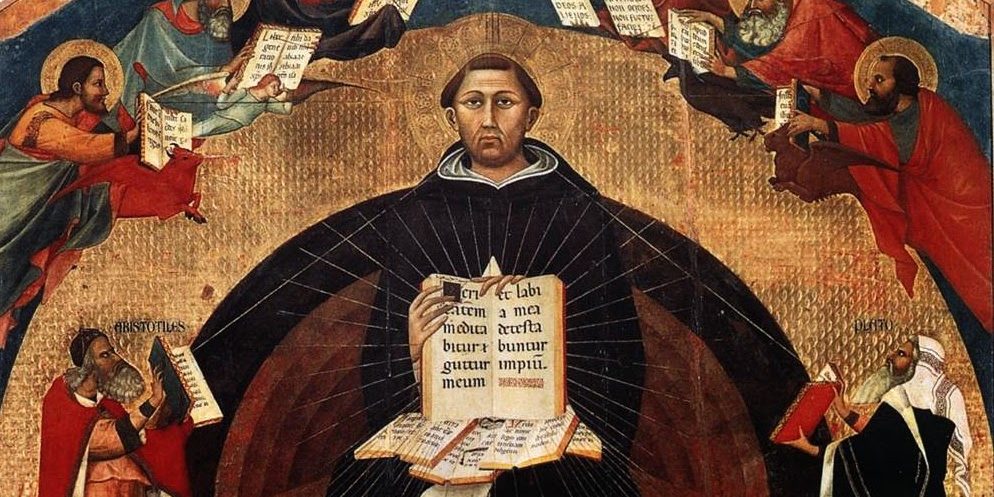
25 Myths about Thomas Aquinas
Who’s afraid of Thomas Aquinas?
Protestants.
Years ago I walked into a theology bookstore and asked the owner if he had any books by Thomas in his collection. “I would never carry anything by that Popish heretic!” he said and walked away. That is the knee-jerk reaction of many (most?) Protestants today. However, the Protestant disgust with Thomas is informed more by caricatures than careful history, more by stereotypes than scholarship, more by rumors than research. In my experience, most evangelicals have never read Thomas anyway and those that have read Thomas project their modern bias back on Thomas so that he lives up to those false impressions they have already embraced.
Nevertheless, I believe Thomas is a fountain of orthodoxy. The irony of the evangelical revulsion against Thomas is this: Thomas was more orthodox in his theology than many evangelicals today. Furthermore, his scholastic method was just as didactic, aimed at the practical and personal instruction of students for the sake of the church. Our Protestant Scholastic fathers knew as much and retrieved Thomas out of a spirit of critical appropriation to guard the Reformed faith in their own day.
Far more can be said. In the years ahead I will be writing a book on Thomas Aquinas that retrieves the dumb ox for Protestant theology today. Until then, here are 25 Myths about Thomas Aquinas that do not hold up to historical accuracy but Protestants are prone to believe. Coming to terms with these slippery myths may launch you on a journey to find the real Thomas, a Thomas you will find a most astute and (dare I say) reliable exegete, theologian, philosopher, and pastor. There are many who are a “doubting Thomas.” May you not be one of them.
25 Myths about Thomas Aquinas:
1. Thomas allowed Greek philosophy to corrupt Christian theology.
2. Thomas merely baptized Aristotle to construct theology. For example, Thomas baptized Aristotle’s Unmoved Mover without major metaphysical adjustments or improvements.
3. Thomas was primarily a philosopher, not a biblical exegete or theologian.
4. Thomas was a rationalist, allowing reason to reign autonomous and dictate theology.
5. Thomas’s use of Natural Theology was actually advocacy for Natural Religion.
6. Thomas’ God is impersonal.
7. Thomas was a pantheist or at least a panentheist, both of which he never denies or refutes.
8. Thomas represents a scholasticism that is speculative and elitist.
9. Thomas betrayed the classical methods, theology, and spirit of the church fathers.
10. Thomas was Pelagian or at least semi-Pelagian; he was not an Augustinian.
11. Thomas was the target of the Reformation.
12. Thomas is the gateway to Roman Catholicism. Also, Thomas invites dialogue between Roman Catholics and Protestants that can only lead to ecumenism and compromise.
13. No respectable reformer appreciated or appropriated Thomas once they converted to the Reformation, and certainly no reformer remained a Thomist.
14. Thomas was accurately presented to Luther by late medieval scholastics (Biel) and Luther’s contemporaries (Karlstadt).
15. Thomas led Protestant Scholastics away from the biblical methods and theology of the Reformation.
16. Thomas was mistaken on justification so none of his insights can be appropriated for soteriology.
17. Thomas created dichotomies and strict dualisms between natural and supernatural, between body and soul, etc.
18. Thomas taught transubstantiation because he was a slave to Aristotelian categories.
19. Thomas is identical with the textbook Thomism of the last century.
20. Thomas was rejected wholesale by modern Reformed theologians like Herman Bavinck who considered Thomas dangerous.
21. Thomas has been accurately understood and therefore successfully refuted by Abraham Kuyper, Karl Barth, Cornelius Van Til, and Francis Schaeffer.
22. Thomas is rejected by the best Reformed theologians today. Reformed Thomism is a betrayal of historic Reformed theology.
23. Thomas is irrelevant to Protestantism and its history, as both evangelical and Roman Catholic historiography assumes.
24. Thomas’s argument for God is the equivalent of evidentialist apologetics since the Enlightenment.
25. Thomas has been read by evangelicals. A majority of his Summa conflicts with evangelical theology.
p.s., to learn more about Thomas Aquinas, here are a few Credo Podcast episodes that can help:

